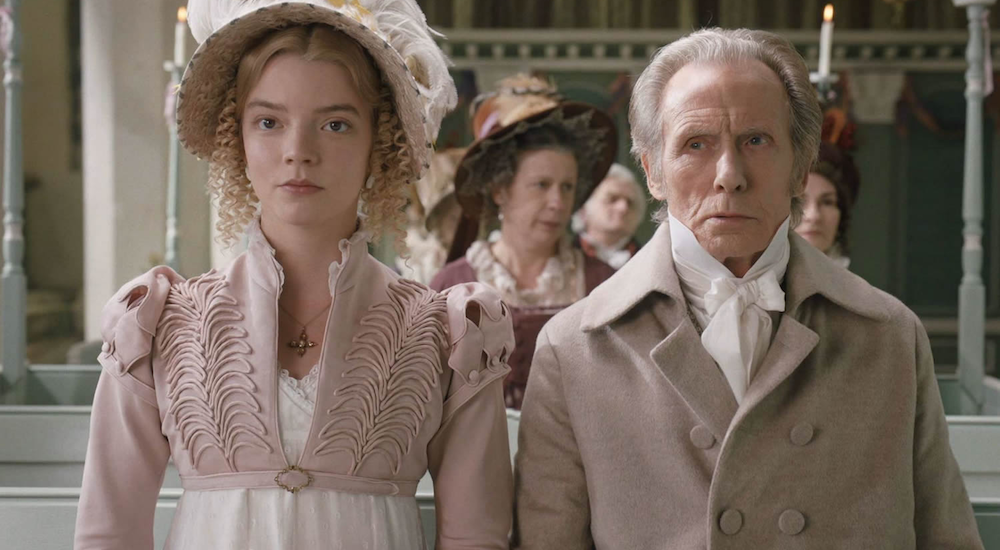Did we really need another adaptation of Jane Austen’s Emma? Probably not. But if you’re going to make another adaptation, you might as well make it your own. With most audiences familiar with the story, director Autumn de Wilde has given us a sumptuous, highly aesthetic version of Emma that leans more on artistry than accuracy.
As with most Austen novels, you can choose an Emma adaptation that fits your mood. In just the last 30 years you can choose from Gwyneth Paltrow’s 1996 feature film Emma, Kate Beckinsale’s also-1996 television movie Emma or 2009 television miniseries Emma starring Romola Garai. In the mood for something looser? You’ve got 1995’s modern adaptation Clueless and 2013’s web series Emma Approved. There’s even an Indian rom-com version, 2010’s Aisha.
In case you need a quick refresher, Emma tells the story of Emma Woodhouse (Anya Taylor-Joy), a 21-year-old woman living in 1800s England with her hypochondriac father (Bill Nighy). Austen herself describes her as “handsome, clever, and rich”, someone who has never had to face much adversity. Outside of her family, she’s joined by a cast of characters that includes her friend/charity case Harriet Smith (Mia Goth), a pretentious single priest (Josh O’Connor), various townspeople (Miranda Hart, Gemma Whelan, Rupert Graves) and, of course, her stern and argumentative friend Mr. George Knightley (Johnny Flynn).
2020’s Emma doesn’t hide its disinterest in telling a period-accurate story. Here is a film firmly rooted in a modern aesthetic, from its bold, evenly-spaced title with a period punctuation mark to its avoidance of the drab beige and browns we may associate with more time-appropriate palettes. Best known for her work in music videos, Autumn de Wilde brings that same stylish eye to the big screen, with sumptuous outfits, decorative architecture and wild patterns in all sorts of colors. Unlike other adaptations, it leans on Emma’s less often explored satirical and comedic elements, with the actors turning each character’s vice to eleven. Her father lives in a panicked state about drafts, Mr. Elton waggles his eyebrows at the ladies for peak creepiness and Mrs. Bates is over the top in her rush to impress Emma.
Unlike other adaptations, de Wilde is quick to emphasize the less polished aspects of our characters. She lets awkward moments breathe as long as possible and we even see the bare butts of Knightley, undressing after a ride on horseback, and Emma, warming her bare bum by the fire on a cool morning. For all their glam houses and costumes, de Wilde drops in these moments of mess to help remind us these are just people forced by class structure to act politely, people who let their guard down when no one is looking. Maids and butlers, purposely, are considered no one to the likes of Emma and Knightley.
While the story is relatively unchanged, Emma’s setting is given new life with actors that don’t shy away from the less pristine aspects of humanity. It all amounts to a film that, much like their polite society rules, is incredibly unnecessary but enjoyable all the same.

